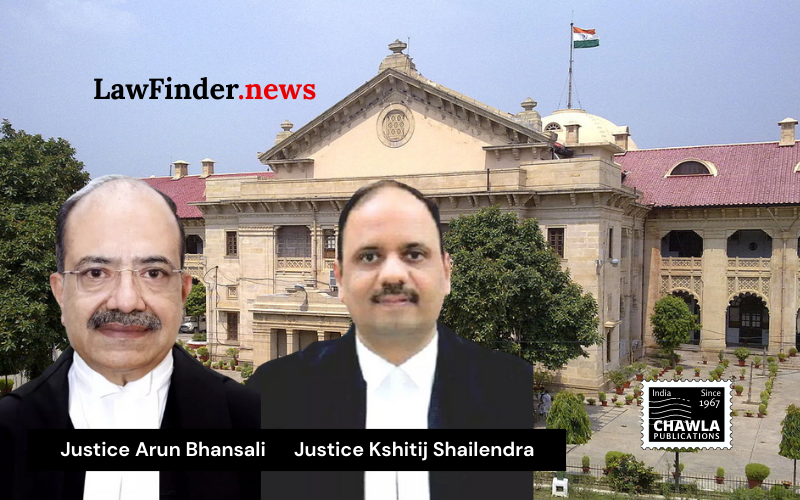Commercial Court's refusal to hear arbitration challenge deemed appealable under "Effect Doctrine"
In a significant judgment dated September 17, 2025, the Allahabad High Court, presided over by Chief Justice Arun Bhansali and Justice Kshitij Shailendra, ruled in favor of Jaiprakash Associates Limited, allowing an appeal against orders from the Commercial Court, Kanpur Nagar. The Commercial Court had closed proceedings on an application filed by the appellant under Section 34 of the Arbitration and Conciliation Act, 1996, citing lack of jurisdiction due to the moratorium imposed by the National Company Law Tribunal (NCLT) under the Insolvency and Bankruptcy Code, 2016.
The crux of the case revolved around whether the closure of proceedings by the Commercial Court, without offering an alternative legal avenue, effectively amounted to a refusal to set aside an arbitral award under Section 34, thereby making the appeal maintainable under Section 37(1)(c) of the Arbitration Act.
Jaiprakash Associates Limited had originally filed an application to set aside an arbitral award dated October 4, 2017. However, during the pendency of these proceedings, ICICI Bank initiated a Corporate Insolvency Resolution Process against Jaiprakash, leading to a moratorium under Sections 13 and 14 of the Insolvency and Bankruptcy Code.
The Commercial Court, upon receiving this information, closed the proceedings for lack of jurisdiction and ordered the application to be returned. This decision was challenged by Jaiprakash Associates, arguing that the order effectively dismissed their application without providing any alternative legal remedy.
The High Court, analyzing the "Effect Doctrine" as laid down in previous Supreme Court rulings, notably Chintels India Limited v. Bhayana Builders Private Limited, concluded that the Commercial Court’s order indeed sealed the fate of the application without redressal, thus qualifying as an effective refusal to set aside the arbitral award. Consequently, the appeal was deemed maintainable.
This judgment underscores the importance of the "Effect Doctrine" in arbitration proceedings, ensuring that procedural closures without alternative remedies can be challenged under Section 37(1)(c) of the Arbitration Act.
The case will proceed further on September 23, 2025, as fresh, opening the doors for Jaiprakash Associates Limited to contest the arbitral award.
Bottom Line:
Maintainability of appeal under Section 37 of the Arbitration and Conciliation Act, 1996, assessed through the lens of the "effect doctrine" in light of the closure of proceedings by the Commercial Court for lack of jurisdiction.
Statutory provision(s): Arbitration and Conciliation Act, 1996 Sections 34, 37(1)(c), Insolvency and Bankruptcy Code, 2016 Sections 13, 14, 33, 63




